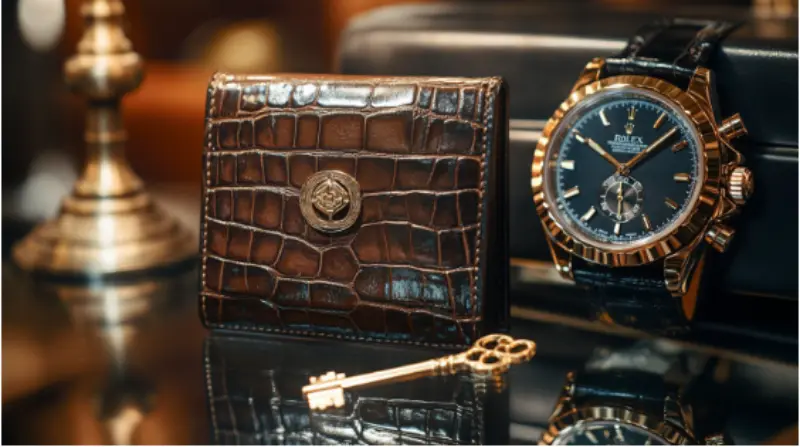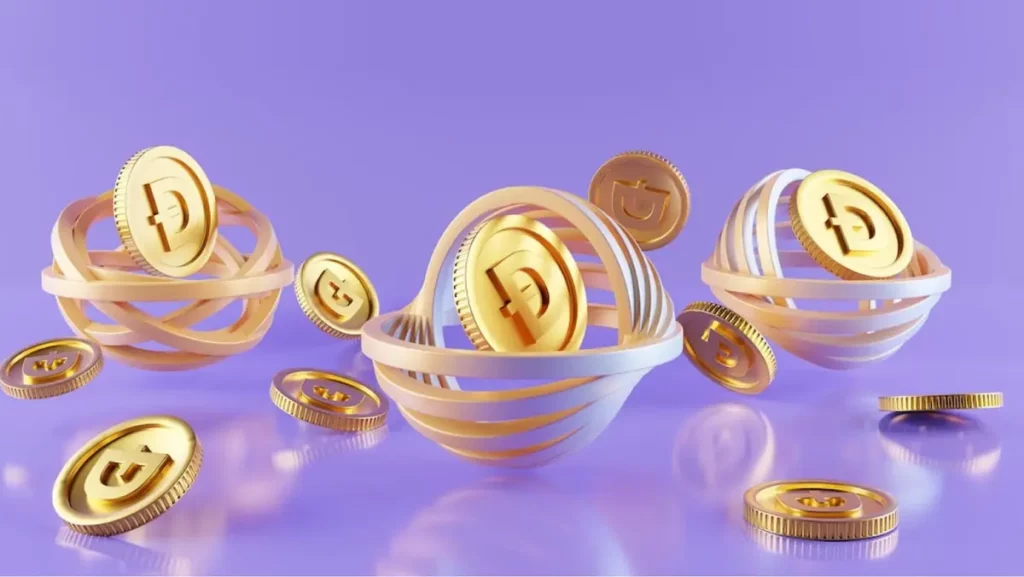Blog
Digital Wealth Meets Designer World: Crypto’s Luxury Takeover
The luxury industry, traditionally built on exclusivity and tangible craftsmanship, is undergoing a remarkable transformation as cryptocurrency wealth and volatile Dogecoin price movements create new opportunities and reshape consumer behaviors. From digital collectibles to high-end real estate, the worlds of blockchain and luxury are increasingly intertwined.
The New Luxury Consumer

Today’s crypto-wealthy individuals represent a fresh demographic in the luxury market. Unlike traditional high-net-worth individuals, these “crypto natives” often skew younger, are more tech-savvy, and approach luxury consumption differently. They seek experiences that blend digital innovation with traditional premium quality, driving luxury brands to evolve their offerings and payment methods.
Luxury Real Estate
The real estate sector was among the first luxury segments to embrace cryptocurrency transactions. High-end properties in Miami, Dubai, and New York now regularly appear with Bitcoin price tags. This trend has several advantages:
- Speed of transactions: Traditional wire transfers can take days; crypto transactions are nearly instant
- International accessibility: Crypto eliminates many cross-border payment complications
- Privacy: While transparent on the blockchain, crypto transactions offer certain privacy benefits
- Investment diversification: Property serves as a tangible asset backing for crypto wealth
Fashion’s Digital Revolution

Premium fashion houses have embraced the crypto revolution in multiple ways:
- Digital Payment Options: Brands like Gucci, Balenciaga, and Off-White now accept cryptocurrency payments in select locations
- NFT Collections: Limited-edition digital collectibles that offer exclusive access to physical products or events
- Metaverse Presence: Virtual stores and digital fashion items for avatars
- Authentication: Blockchain technology to combat counterfeiting
These initiatives attract both traditional luxury consumers interested in digital innovation and crypto investors looking to diversify into tangible assets.
Timepieces and Tokens
The luxury watch market has particularly benefited from crypto wealth. Brands like Hublot and TAG Heuer have introduced cryptocurrency payment options, while platforms like Chronoswiss blend traditional watchmaking with blockchain technology through:
- NFT-paired limited editions
- Digital ownership certificates
- Exclusive crypto-community timepieces
- Blockchain-based authentication systems
Automotive Innovation

Luxury car manufacturers are racing to accommodate crypto-wealthy clients:
- Tesla’s brief Bitcoin acceptance sparked industry interest
- Lamborghini and Porsche have launched NFT collections
- Premium dealerships increasingly accept cryptocurrency payments
- Some manufacturers are exploring blockchain for supply chain management
The Art of Digital Luxury
The art market’s transformation through NFTs has created new categories of luxury collecting:
- Digital art galleries
- Hybrid physical-digital artwork
- Exclusive membership tokens
- Virtual exhibitions
These innovations have attracted both traditional collectors and new crypto-wealthy patrons.
Travel and Hospitality

Luxury travel is rapidly evolving to embrace cryptocurrency innovations, with private jet services now accepting crypto payments for seamless international travel. Exclusive resorts have launched NFT membership programs that offer unique perks and access, while high-end hotels are developing sophisticated digital concierge services powered by blockchain technology.
Meanwhile, luxury cruise lines are exploring blockchain-based loyalty programs that reward guests with tokenized benefits, creating a more integrated and tech-forward travel experience for affluent crypto enthusiasts.
Challenges and Considerations
Despite the enthusiasm, several challenges remain:
Price Volatility
- Luxury brands must manage cryptocurrency’s price fluctuations
- Some opt for immediate conversion to fiat currency
- Others hold portions of crypto payments as investments
Regulatory Compliance
- Varying international regulations affect crypto transactions
- KYC (Know Your Customer) requirements for high-value purchases
- Tax implications for both buyers and sellers
Environmental Concerns
- Energy consumption of specific cryptocurrencies conflicts with luxury sustainability goals.
- Brands are increasingly seeking eco-friendly blockchain solutions
- Focus on proof-of-stake cryptocurrencies
The Future of Luxury Crypto

Several trends are shaping the future of luxury and cryptocurrency integration. The merging of physical and digital realms is introducing bright luxury goods with blockchain verification, digital twins of physical items, and enhanced resale market transparency.
New luxury categories are emerging, featuring digital-only items, hybrid experiences that blend physical and virtual elements, and exclusive access tokens for premium services. Community building is becoming crucial, with crypto-focused luxury communities, token-gated events, and collaborative consumption models gaining prominence. From an investment perspective, luxury items are being viewed as portfolio diversification tools, with high-value collectibles becoming tokenized and premium assets offering fractional ownership opportunities.
Security and privacy considerations have led to enhanced digital security measures, private blockchain solutions for luxury transactions, and the development of confidential transaction options, all working together to create a more sophisticated and secure luxury crypto ecosystem.
Looking Ahead
The convergence of cryptocurrency and luxury markets represents more than a temporary trend. It’s a fundamental shift in how premium goods and services are bought, sold, and experienced. As blockchain technology matures and crypto markets stabilize, we can expect:
- More sophisticated integration of digital and physical luxury experiences
- Increased acceptance of cryptocurrency payments across luxury sectors
- New luxury categories native to the digital realm
- Enhanced authentication and provenance tracking
- Evolution of luxury marketing for crypto-wealthy consumers
The luxury industry’s embrace of cryptocurrency reflects a broader digital transformation. Successful brands will be those that maintain their traditional quality and exclusivity while innovating to meet the preferences of crypto-wealthy consumers. This balance between heritage and innovation will define luxury’s next chapter in the digital age.

Conclusion
For both luxury brands and crypto enthusiasts, the future promises exciting possibilities. As these worlds continue to merge, we’re likely to see unprecedented innovations in how luxury is defined, created, and consumed. The key will be maintaining the essential qualities that make luxury unique while embracing the opportunities that cryptocurrency and blockchain technology provide.


